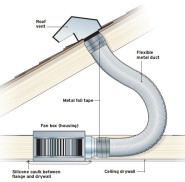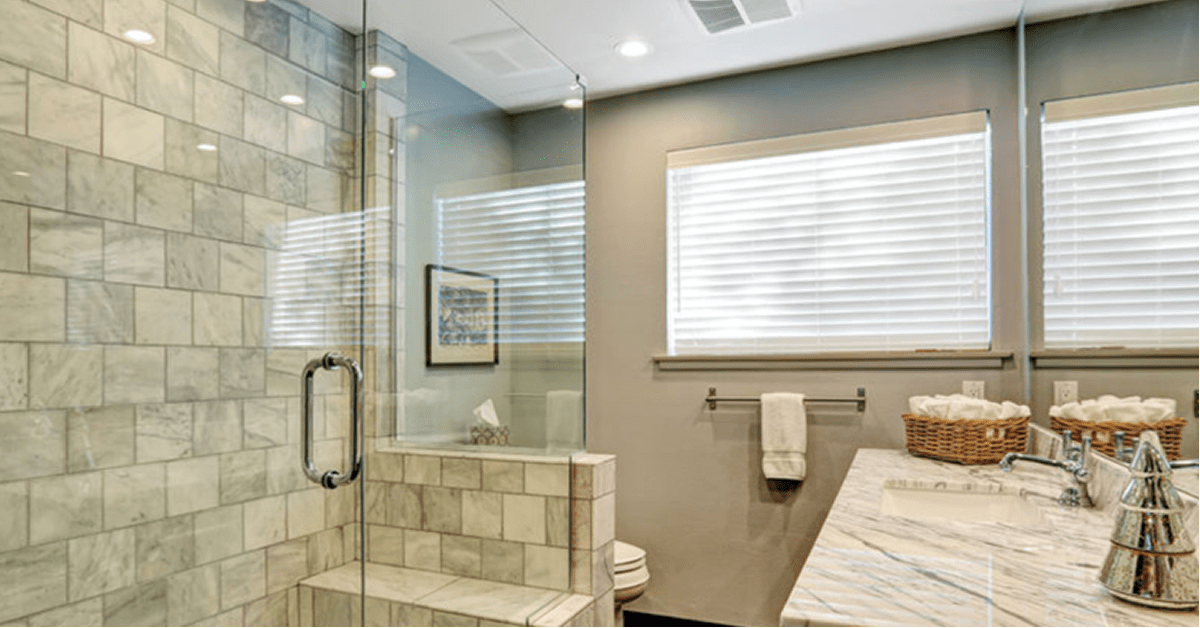Everyone is concerned about their electric bills in this hot and humid weather. Here is another way to help your AC system “keep your cool.”
There is no doubt that the bathroom exhaust fans in your home have an important job to do, but they can also suck cool dry air from your home and cause your AC system to run longer and increase electric bills. Knowing how to best use your exhaust fans properly helps avoid unexpectedly high energy bills during this extreme heat wave.
It is important to realize that while your bathroom fan is taking hot, humid, and sometimes stinky air out of the bathroom, that air must be replaced, and it is replaced with outside air. That means that if it is 95° with high humidity outside, that hot humid air is entering your house. From where? Well, it enters wherever the house has leaks. All houses have leaks.

How much air does a typical bathroom fan pull?
A typical bathroom fan will pull 80 cubic feet per minute (CFM). A typical bathroom at 6’ X 10’ is 480 cubic feet. So, all things perfect (which they never are), the fan can remove the air for that room in 6 minutes. While there are factors that prevent all the air in the room from being removed and replaced, it is worth noting that a room full of air is being replaced in your house that now needs to be cooled and dehumidified.
How long should you run a bathroom exhaust fan?
It is good to run your fan during and immediately after a shower. Bathrooms can get to 100% humidity. However, when the temperature is hot and humid outside, you do not want to run the fan too long. A good rule of thumb is to turn the fan off when the mirror is no longer steamed up. If you turn the fan off right after your bath or shower, you’re not giving the exhaust fan long enough to vent all the steam. However, leaving the fan on for long periods means that your AC system has to work hard to cool and dehumidify the hot sticky outside air brought into your house from the exhaust fan.
Be a fan of fans, let them pull out the extreme humid air, but don’t let them run too long.



